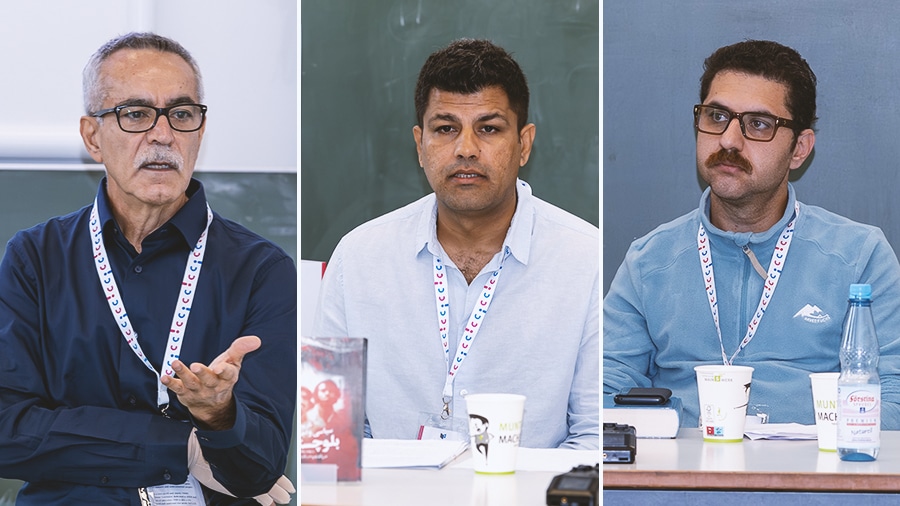Mohammad Rigi Derakhshan
Intellectual-Social Currents in Baluchistan
Alireza Behtoui
Leftists and Democracy
Moderator: Emmanuel Shokrian
Mohammad Rigi Derakhshan discusses the evolving political and social dynamics in Baluchistan, particularly through the lens of identity politics. The emergence of regional and global events, such as the end of the Cold War, the collapse of the Soviet Union, and the global spread of postmodernism, has intensified discussions around ethnicity, nationalism, and statehood.
Baluchistan, historically marginalized and underdeveloped, reflects the broader center-periphery divide in Iran. Before the 1979 Revolution, tribal and feudal structures mediated relations between the Baluchi people and the central government.
However, during the revolution, leftist intellectuals sought to dismantle these systems, leading to the rise of Sunni clergy (Molavis) as the primary intermediaries with the central government. Sunni clergy, supported by an Islamic regime opposed to secularism, collaborated in suppressing leftist influences in the region.
Consequently, Baluchistan’s sociopolitical identity became more closely aligned with Sunni Islamic identity. The Diobandi school of thought established a moderate Sunni presence, while radical Sunni factions, such as Jundullah under Abdulmalek Rigi, pursued armed resistance, succeeded by Jundullah’s offshoot, Jaish al-Adl.
Leftist movements, weakened by suppression and exile, saw some former members adopt Baluchi nationalism. While progressive leftist ideas have gained traction among educated Baluchis, their influence remains limited due to their detachment from the broader Baluchi populace.
This article analyzes the political currents in Baluchistan, their historical development, and their potential role in shaping the region’s future.
Alireza Behtouei examines the complex relationship between leftist ideologies and democracy. While leftist movements have consistently highlighted the challenges posed by dictatorship and the absence of democracy, they have often failed to critically evaluate their own theories and practices.
The article begins with a minimal definition of democracy from a modern sociological perspective and traces its place in classical leftist thought. It delves into the historical evolution of this relationship, contrasting the approaches of communists and social democrats, or revolutionaries and reformists.
The analysis extends to the “New Left” post-1980s and its practical engagement with democracy. Focusing on the Iranian context, Behtouei explores how the left, despite never holding political power, has significantly influenced the political, social, and cultural landscapes since the Constitutional Revolution.
The piece traces the transformation of the Iranian left’s views on democracy from the Constitutional Revolution to the Islamic Revolution in 1979, and the post-revolutionary years, especially after the collapse of the Soviet Union in 1989.
The study also addresses contemporary challenges faced by the Iranian left, including its engagement with issues of class, gender, ethnicity, and religion in a democratic framework, and how these intersect with economic, social, and political structures.


